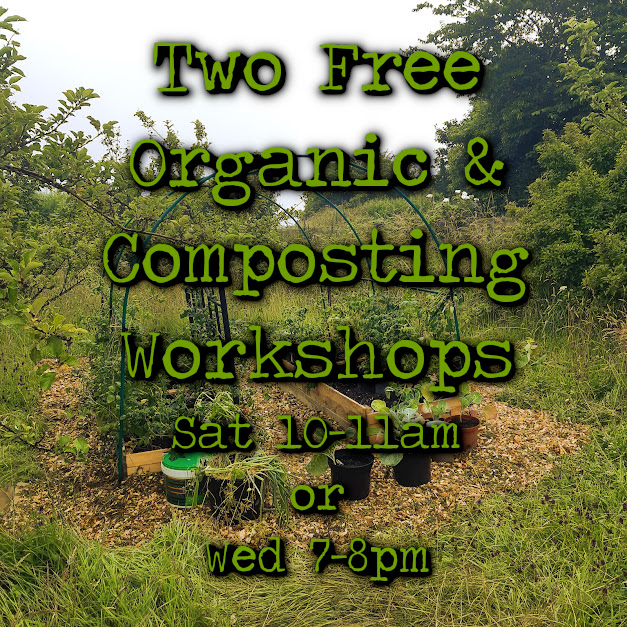Free Organic and Composting Workshop

The two beginners workshops that ran on Saturday 10-11am and Wednesday 7-8pm, have now finished. Those slots are now open in the first week of August, replaced with a free Organic and Composting workshop. Please register by clicking this link. If you can’t register – drop me a note either by email, messenger or instagram.
The Workshop will take on two aspects of growing
- Grow naturally, without buying synthetic chemicals and pesticides. Discuss improving soil life, making organic feeds and teas to improve fertility, helping to reduce pests damage and increase yields. Korean Natural farming backbone of the course along with other ideas and concepts I like to use.
- Composting, in particular Bokashi composting, it’s a way of fermenting compost so it breaks down quickly. We’ll make activated bran and you can try this process at home.
The workshops will alternate every week, although there is a lot of cross over and synergy. This will allow some to ferment over a two week period.
At the end of the 6 – 8 week course you be more aware of how to improve soil, microbial life and make some simple plant feeds that don’t reek like a latrine. You’ll have made Bokashi compost from your kitchen waste and used it in the garden.
Everything will be provided on the workshop.
Here are a few things you can source so you can take things home to bring along.
- A couple of buckets with lids that click on, would be ideal to try Bokashi composting at home. Start with a little 1kg yogurt bucket or ice cream tub and scale up when you get the hang of it.
- Little bottles for amendments, feeds and anything else we make, you may take some home to try on your plants.
- A note pad and pencil
The course is free; there is no little asterisk with notes at the bottom with a 12 month contract. Donations are welcome, and help to keep things going. I’m not drawing a salary, but do eat some of the veggies to check if they are as good as I expect them to be, and it’s immensely satisfying to complete the cycle of life.
The three aims of The Sanctuary Garden are
1. To provide an escape, a place to forget about everything else and just enjoy being outside
2. To share knowledge, build on ideas and demystify gardening by doing, showing and explaining why, the background and sometimes the science. I’m a geek.
3. Share produce grown, particularly with those who have food insecurity.
The Sanctuary Garden is organic, has raised beds, a poly tunnel and is aiming to be zero waste by reducing and reusing, particularly when it comes to plastic.
